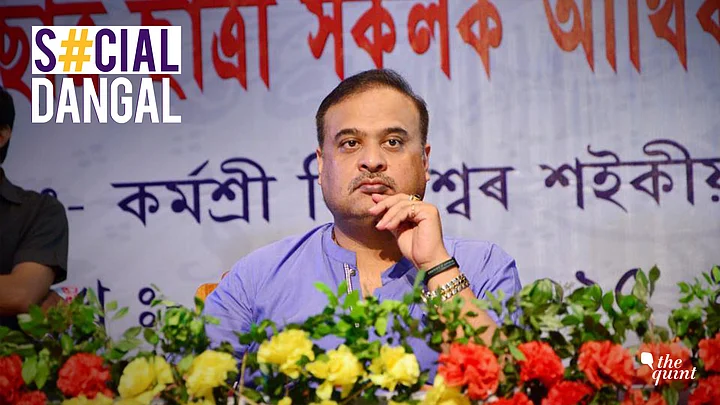The Citizenship (Amendment) Bill providing citizenship to non-Muslims from Pakistan, Bangladesh and Afghanistan has sparked allegations of being a communally motivated move by the National Democratic Alliance government at the Centre.
Many point out that by extending citizenship rights to non-Muslims from Muslim countries, it discriminates against persecuted Muslims as well as communities which are facing oppression in non-Muslim majority countries in India's neighbourhood. For instance, Rohingyas, Tibetans, Sri Lankan Tamils or Baloch from Pakistan are not covered by the Bill.
However, there is another strand of criticism which alleges that by tying citizenship to religion, the government is taking a step towards the creation of a Hindu Rashtra.
According to Communist Party of India (Marxist Leninist) politburo member Kavita Krishnan, the Bill "opens the backdoor to Hindu Rashtra where being Hindu is the basis for citizenship".
Senior journalist and editor of Hard News magazine Sanjay Kapoor said that by excluding Muslims, the Bill strikes a "death blow on India's secular constitution".
Nandini Sundar, professor of sociology at the Delhi School of Economics called the Bill "A glaring step towards Hindu Rashtra".
Guwahati-based lawyer Aman Wadud made an important point on the Citizenship Bill's impact on the National Register of Citizens (NRC) exercise in Assam. Wadud has worked extensively with people whose names were being removed unfairly from the NRC.
He says that with this Bill being passed, the NRC effort will now only be to remove Muslim illegal immigrants, while giving citizenship to Hindu immigrants.
A Twitter handle called “@postmodernasura” says that the Bill isn't even honest when it comes to standing up for all oppressed Hindus, as it leaves out Sri Lankan Tamils.
“Why are 60,000 Eelam Tamil Hinds who fled from genocide not included in this list?” the handle tweeted.
In a detailed thread, the handle explained that successive governments in Tamil Nadu have appealed that Sri Lankan Tamils be given Indian citizenship, as opposed to Assam where people are opposing giving citizenship to Bangladeshi Hindus.
Religion Comes Before Language, Says BJP’s Himanta Biswa Sarma
The BJP's own explanations have only ended up strengthening the fears of those who have called the move communally motivated.
When an Assamese twitter user asked Assam Deputy Chief Minister Himanta Biswa Sarma whether religion came first for him or language, the BJP leader replied, "Religion".
The question to Biswa Sarma and his reply must be seen in the context of the widespread opposition the Citizenship Bill is facing in Assam. BJP’s ally in Assam, Asom Gana Parishad has walked out of the alliance in protest against the Bill. But that hasn’t deterred the deputy chief minister who continues to defend the Bill, hailing it as a move to save India from "Jinnah's ideology".
When former Assam Chief Minister Tarun Gogoi of the Congress accused Biswa Sarma of following "Jinnah's communal ideology", the latter tweeted that he is "proud of it".
Even though the Bill aims to provide citizenship to persecuted non-Muslim minorities from Bangladesh, Pakistan and Afghanistan, many like Biswa Sarma are hailing it as a Hindu-oriented move.
Alok Bhat, a pro-Modi Twitter user with nearly 40,000 followers and the words “Modi Once More” as his display picture, tweeted that "India is to Hindus what Israel is to Jews" and demanded that "persecuted Hindus must be given refuge in India". He further threatened that Assam will become Kashmir if the people of the state don't support the Bill.
Another Twitter handle Agent Saffron called the Bill a "baby step towards Hindu Rashtra".
Senior journalist Uday Mahurkar also sees the Bill as part of the 'Hindutva vs Islamism' narrative and hailed it as a "truly Savarkarian" move.
So irrespective of ideology, many are seeing the Citizenship Bill as a Hindu-oriented move rather than one meant for all persecuted minorities. And Himanta Biswa Sarma’s choice of words seems to have only confirmed this.
(At The Quint, we question everything. Play an active role in shaping our journalism by becoming a member today.)
